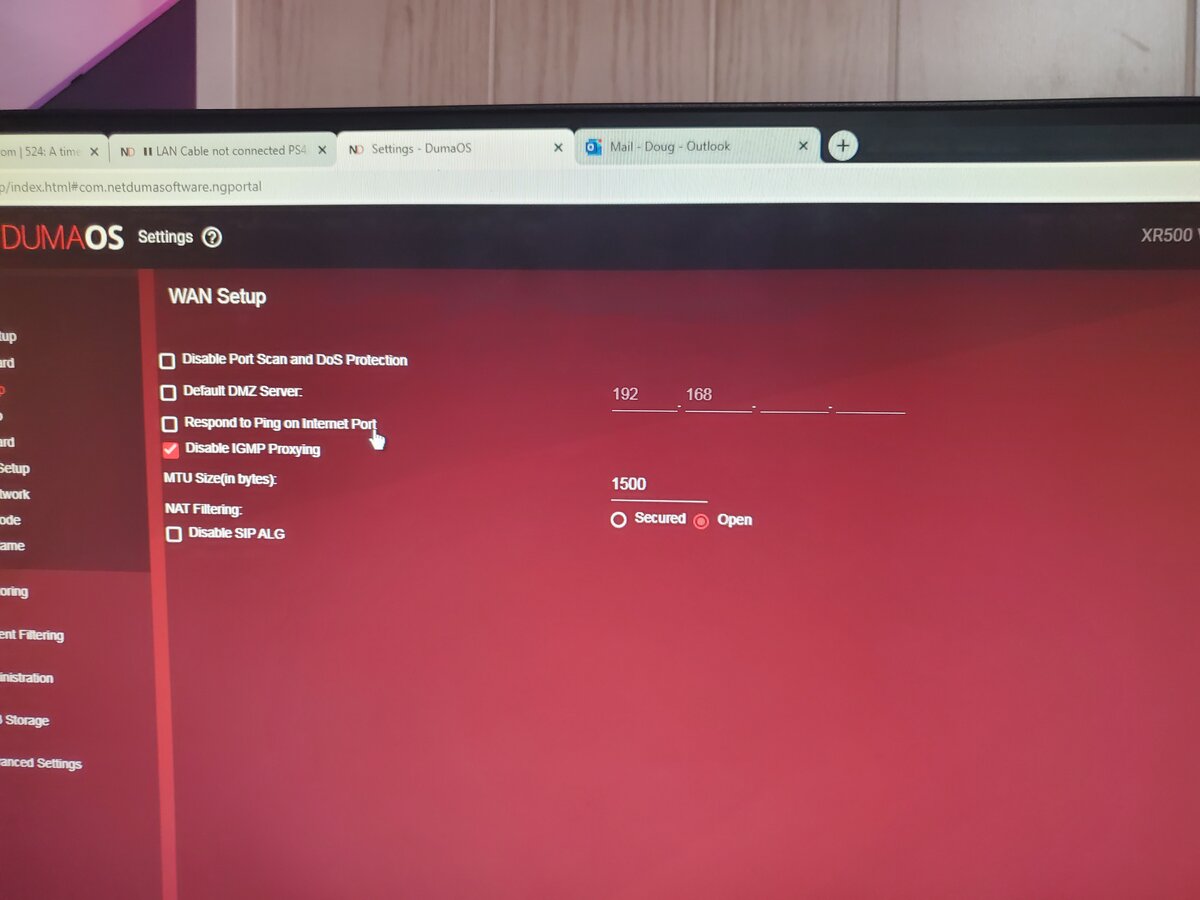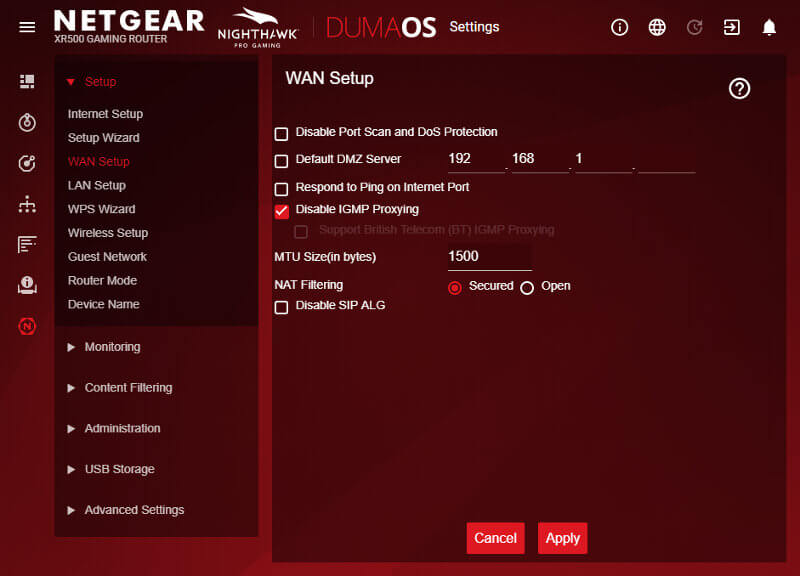Breathe life into your gaming | Shop Now
Discover your new PC| Get one now
Take it home today
Port scan and DOS protection are two important security features that can help protect your computer from attack. But what if you don’t need them? Should you disable port scan and DOS protection?
Let’s take a look at the pros and cons of each security feature to help you make a decision.
Order Now Skytech Shadow Gaming PC Desktop
If you’re wondering whether or not you should disable port scan and dos protection, the answer is probably no. Unless you’re a experienced network administrator and know exactly what you’re doing, it’s best to leave these security features enabled. Port scanning can be used by hackers to find vulnerabilities in your system, so it’s important to have this protection in place.
DOS (Denial of Service) attacks can also be devastating, so it’s crucial to have this type of protection enabled as well. In short, unless you’re confident that you can configure your network without these security features, it’s best to leave them enabled.
How To Stop DDOS Attacks ~ Ways to Prevent DDoS Attacks | Stop DDOS Attacks Now ~ Nico Knows Tech
What Does Disabling Port Scan And Dos Protection Do?
If you’re a security-minded individual, you might be wondering what disabling port scan and DoS protection does. After all, why would you want to disable something that’s designed to protect your computer from malicious activity? The answer is actually quite simple: in some cases, disabling port scan and DoS protection can improve your computer’s performance.
Here’s a closer look at why this is the case. When your computer is scanned for open ports, it takes up valuable resources that could be used elsewhere. This can slow down your computer, especially if it’s already running low on RAM or processing power.
Additionally, some port scanners are configured to launch denial of service attacks against the IP addresses they scan. This means that if you have port scan and DoS protection enabled, your computer could be inadvertently taking part in an attack! So if you don’t need portscanning or don’t think you’re likely to be the target of a denial of service attack, feel free to disable these features in your security software.
Your computer will thank you for it!
Should I Turn off Dos Protection?
DoS protection is a security measure that helps to protect against denial of service attacks. These attacks can be very serious, and can result in loss of data or even system downtime. However, there are some situations where it may be necessary to turn off DoS protection.
For example, if you are troubleshooting a network issue, you may need to disable DoS protection temporarily in order to isolate the problem. You should always consult with your IT staff or security team before disabling any security measures.
What Does Enable Dos Protection Mean?
DoS protection is a security measure that helps to protect against denial of service attacks. These attacks can be very disruptive and can cause an outage of services for legitimate users. DoS protection can help to mitigate the effects of these attacks by identifying and filtering out illegitimate traffic before it reaches the target system.
This can help to keep services up and running for those who need them, even in the face of a DoS attack.
What is a Dos Attack on My Router?
A DoS attack on your router is a type of Denial of Service attack that specifically targets your router. This can be done in a number of ways, but the most common is to overload the router with traffic so that it can no longer process legitimate requests. This can be done by using a botnet to send large amounts of traffic to the router, or by using a reflector attack to amplify the traffic that is sent to the router.
Either way, the result is the same – your router becomes overwhelmed and stops working properly. There are a few things you can do to protect yourself from this type of attack. First, make sure that your router’s firmware is up to date.
Many routers have security features that can help defend against these attacks, but they need to be properly configured. Second, consider using a VPN so that all of your internet traffic is encrypted and routed through another server. This will make it much harder for an attacker to target your specific device.
Finally, keep an eye on your network activity and look for any unusual patterns that could indicate an ongoing attack. If you see anything suspicious, disconnect from the network and contact your ISP or security team immediately.
Order Now Skytech Shadow Gaming PC Desktop

Credit: forum.netduma.com
Should I Disable Port Scan And Dos Protection for Gaming
If you’re a gamer, you know that every millisecond counts. That’s why many gamers choose to disable port scan and DOS protection on their routers. But is this really the best decision?
Let’s take a look at the pros and cons of disabling port scan and DOS protection for gaming: Pros: – Faster gaming experience since there’s one less thing for your router to process
– Can help reduce lag – Gives you more control over your gaming connection Cons:
– Makes you more vulnerable to attacks from hackers and malware
Respond to Ping on Internet Port on Or off
If you’re like most people, you probably have your computer’s firewall turned on and are wondering what the “respond to ping” option on your router means. Well, let’s start with a little bit of history. The Ping command was created by Mike Muuss in December 1983 as a tool to test whether a particular host was reachable across an IP network.
It works by sending out a small packet of data (the “ping”) and waiting for a response. If the target host responds, then we know it’s online and available. The problem is that some malicious individuals also use the Ping command to probe for vulnerable systems so they can launch attacks against them.
That’s why many routers and firewalls now have the option to disable Ping responses – it helps reduce the chances of being probed and attacked. So should you respond to Ping requests or not? Ultimately, it’s up to you – there are pros and cons to both approaches.
If you’re concerned about security, then disabling Ping responses may be the best option. However, if you need to troubleshoot connectivity issues, then allowingPing requests may be necessary.
Disable Port Scan And Dos Protection Gaming
If you’re a gamer, you know that one of the worst things that can happen is for your game to be interrupted by a port scan or a denial of service attack. Luckily, there are ways to protect yourself from these unwanted interruptions. One way to protect yourself is to disable port scanning and denial of service protection on your gaming computer.
This can be done in your router’s settings or in your computer’s security settings. By doing this, you’ll make it more difficult for someone to target your game with an attack. Another way to protect yourself is to use a gaming VPN.
A VPN will encrypt your traffic and route it through another server, making it much harder for someone to snoop on your activity or launch an attack. Finally, make sure that you have a good firewall and antivirus software installed on your computer. This will help defend against any attacks that do manage to get through.
By following these steps, you can help keep your gaming sessions uninterrupted and avoid any frustrating disruptions.
Order Now Skytech Shadow Gaming PC Desktop
Conclusion
If you’re running a website, you may be wondering if you should disable port scan and DOS protection. Both of these can help to keep your site secure, but they can also cause problems if they’re not configured properly. Here’s a look at both options to help you decide which is right for your website.
Port scanning is a process that checks for open ports on a computer or server. This can be used by hackers to find vulnerabilities in a system so they can exploit them. However, it can also be used by security researchers to find open ports so they can patch them before attackers find them.
If you’re not sure whether or not to disable port scan protection, it’s best to leave it enabled and consult with a security expert if you have any concerns. DOS (Denial of Service) attacks are designed to make a system unavailable by flooding it with requests. This can cause the system to crash or become unresponsive.
While DOS attacks are often used by attackers to take down websites, they can also be caused by legitimate users who accidentally send too many requests to a server. If you think your site might be vulnerable to DOS attacks, it’s important to talk to a security expert about how best to protect yourself.



